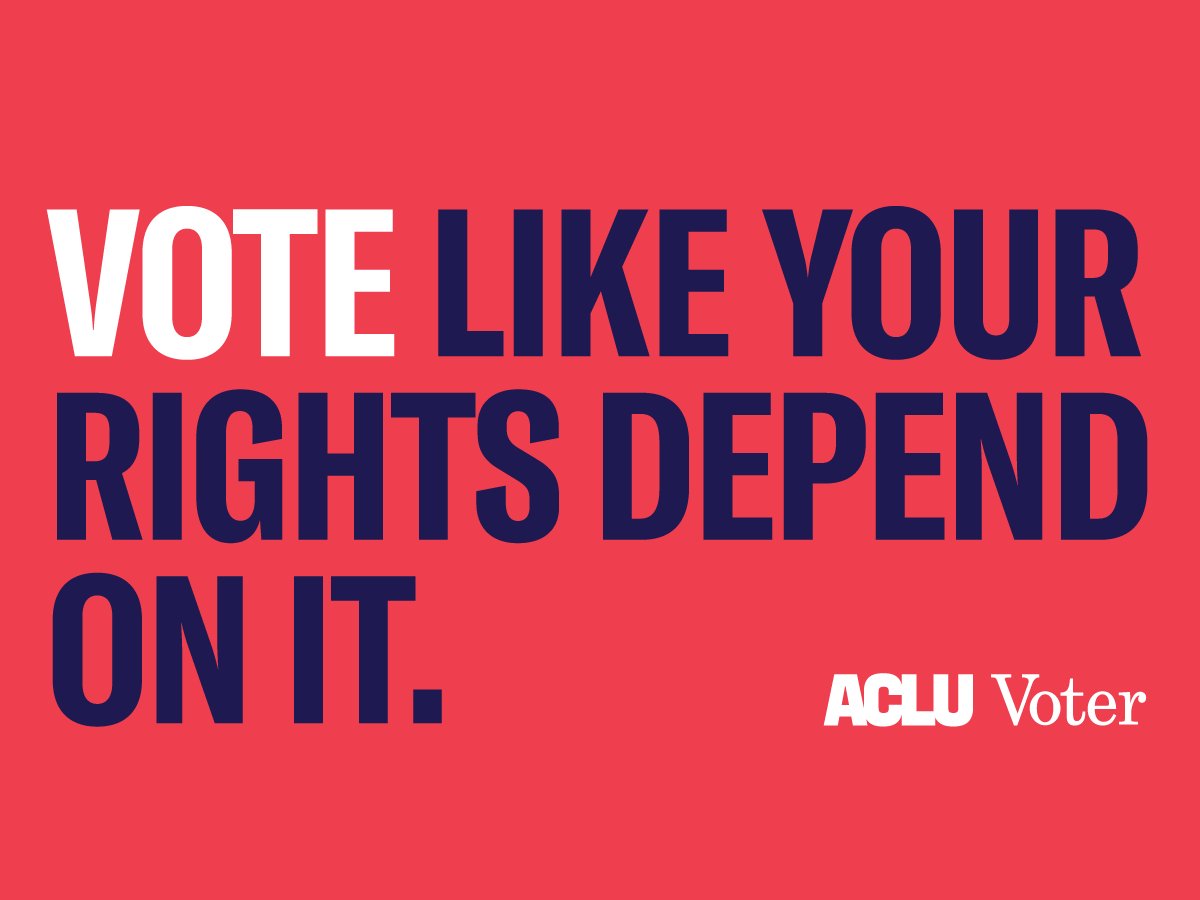If, like me, you’ve been reading about the Trump Administration’s troubling attacks on the U.S. Postal Service and are concerned the cuts may be an attempt to suppress voting, I have good news for Michigan voters: You have options that will ensure your vote will be counted in this crucial election.
Several options, actually.
Voting on Election Day
Voters still have the traditional option of voting at their assigned polling location on Election Day, which is November 3rd. This remains an important and popular option for many voters. In fact, nearly 900,000 voters (almost 43% of those who voted in the August primary election) voted at their polling location. The ACLU has worked hard this year to protect the right to vote in person at your polling location, and will continue to do so.
If you go to the polls, you’ll find poll workers equipped with personal protective equipment to protect their safety and yours. Poll workers will also be cleaning and sanitizing the voting equipment.
Remember, if you aren’t registered to vote or need to update your registration address, you can do that up to 8 p.m. on Election Day. Just go to your city or township clerk’s office or satellite office with proof of residency.
Voting By Mail
Thanks to Proposal 3, the ballot measure the ACLU of Michigan and its allies placed on the ballot and helped pass in 2018, absentee voting has been expanded to allow every registered voter the right to vote without having to show up at the polls. And many across Michigan are choosing this option. In fact, more than 2.2 million Michigan voters have already requested their ballot for November. And those ballots are starting to go in the mail to voters now.
If you haven’t done so already, you can still apply to have your ballot mailed to you. Go to the Michigan Secretary of State website and apply for an absentee ballot. For your mail-in ballot to count, it must arrive at your city/township clerk’s office by 8 p.m. on Election Day.
If you do want to vote by mail, my advice is don’t delay. This election is far too important to put off obtaining your ballot. Apply today, fill your ballot out as soon as it arrives and then mail it in asap – certainly no later than Oct. 20. After that date, drop it off at your city or township clerk’s office or a secure drop box provided by your clerk to be sure it arrives in time to be counted.
In-Person Early Voting
There is a way, however, to avoid having to go to the polls on Election Day and any possibility that your mail-in ballot arrives too late to be counted because of delays caused by cuts to the Postal Service.
Many people don’t realize that they also have the option to vote early at their city or township clerk’s office – or one of the satellite offices opening in many jurisdictions across the state.
In fact, you can go into the office, register to vote, obtain a ballot, fill it out and hand it in all in the same visit. By voting early like this, you can feel secure in knowing that, no matter what, your voice will be heard and your vote will count.
You can go vote early at your city or township clerk’s office starting this Thursday, September 24. And you can do so right up to 4 p.m. the day prior to the election. But don’t wait. Be one of the first to cast your ballot in the November election.
If you want to find out where your clerk’s office is, or if there is a satellite office in your community, the Secretary of State website is again the place to go.
This year especially, it is more important than ever for as many people as possible to engage in this type of early voting. Because of concerns about recruiting enough poll workers to adequately staff the polls on Election Day, attacks on the Postal Service and all the other noise, we need to do everything possible to make sure things run as smoothly as possible this election season.
So, there you have it. The options are there for you to vote in a way that is most comfortable. The key thing is that you find the way that works best for you, and then do it.
Democracy is counting on you.
Date
Sunday, September 20, 2020 - 9:00amFeatured image

